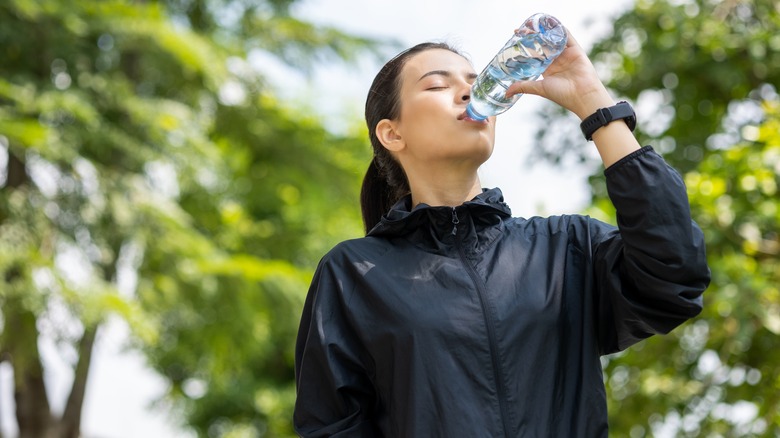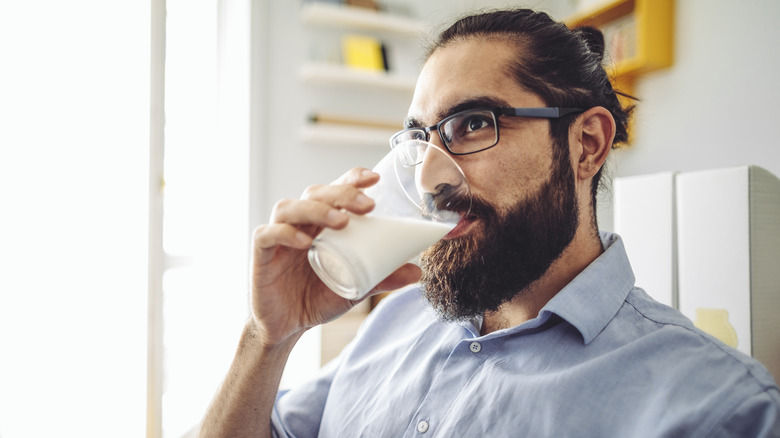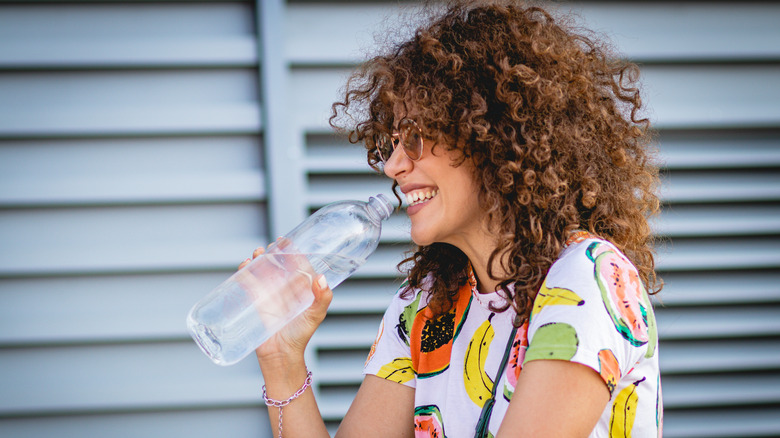For Faster Hydration, Look Beyond Plain Water
After a long run, nothing feels better than drinking a big glass of water. But as it turns out, water isn't the most hydrating drink. In fact, you'd be better off drinking a glass of milk or other beverages, according to a 2016 study published in the American Journal of Clinical Nutrition (AJCN). These findings are quite surprising, considering that water has long been considered the best choice.
Proper hydration is the first step to better health, and plain water ticks all the boxes. For starters, the human body is approximately 60% water. This fluid is integral to our skin, muscles, bones, and internal organs, contributing to nearly every biological process. It regulates body temperature, lubricates our joints, aids digestion, and delivers oxygen to all cells.
Moreover, water is calorie-free and fits into any diet. Some types of water are high in magnesium, calcium, iron, zinc, and other minerals that support optimal health. But even so, there are better options for hydration, or at least that's what AJCN found.
Water isn't the most hydrating beverage
Staying hydrated isn't as easy as it seems, especially for active individuals. Besides water, the human body requires magnesium, sodium, potassium, and other electrolytes to replace the minerals lost through sweat. Water contains varying amounts of electrolytes, but it may not be enough to offset these losses and keep you hydrated. With that in mind, a team of researchers at Scotland's St. Andrews University compared several beverages to see how they affect hydration status.
Scientists asked 72 men to drink water or a commercial beverage, such as milk, cola, orange juice, tea, coffee, or lager. Some consumed an oral rehydration solution or sports drinks. Researchers concluded that all beverages were more hydrating than still or sparkling water except for lager and coffee. The most hydrating drink was skim milk, followed closely by the oral rehydrating solution, full-fat milk, and orange juice. Tea, cola, and sports drinks were only slightly more hydrating than water, reports the AJCN.
These findings indicate that beverages with protein, electrolytes, or even small amounts of fat better hydrate the body than plain H2O. For example, skim milk is significantly higher in sodium and potassium than water. Full-fat milk delivers similar amounts of these two nutrients, but its fat content may slow down their absorption into the body. Orange juice is higher in sodium but lower in potassium than milk, which may explain why it's less hydrating.
No beverage can replace water in the long run
Milk, smoothies, and other beverages are more hydrating than water, but none can replace it in the long run. First, most drinks contain varying amounts of protein, fat, or carbs, including sugar, and can lead to weight gain when consumed in excess. Let's say you normally drink about half a gallon of water daily. If you replaced it with skim milk, you'd get an extra 660 calories daily.
Second, ingesting too much of some nutrients can cause a host of problems, from diabetes to heart disease. Excess potassium may result in heart palpitations, tingling, numbness, difficulty breathing, or digestive distress, warns the National Kidney Foundation. On the other hand, a high-sodium diet can increase your risk of high blood pressure, heart or kidney disease, osteoporosis, and stomach cancer.
Water only contains small amounts of minerals, so it doesn't carry any of these risks. Drinking too much water can lead to hyponatremia, a relatively uncommon and potentially fatal condition. The best thing you can do is listen to your body. Keep a water bottle on hand, take small sips throughout the day, and reach for a glass of orange juice or milk after breaking a sweat. Alternately, fill up on high-water foods like cucumbers, berries, tomatoes, citrus fruits, apples, and leafy greens. Most fruits and vegetables also contain vitamins, minerals, and electrolytes, helping you replace the sweat-loss nutrients.


